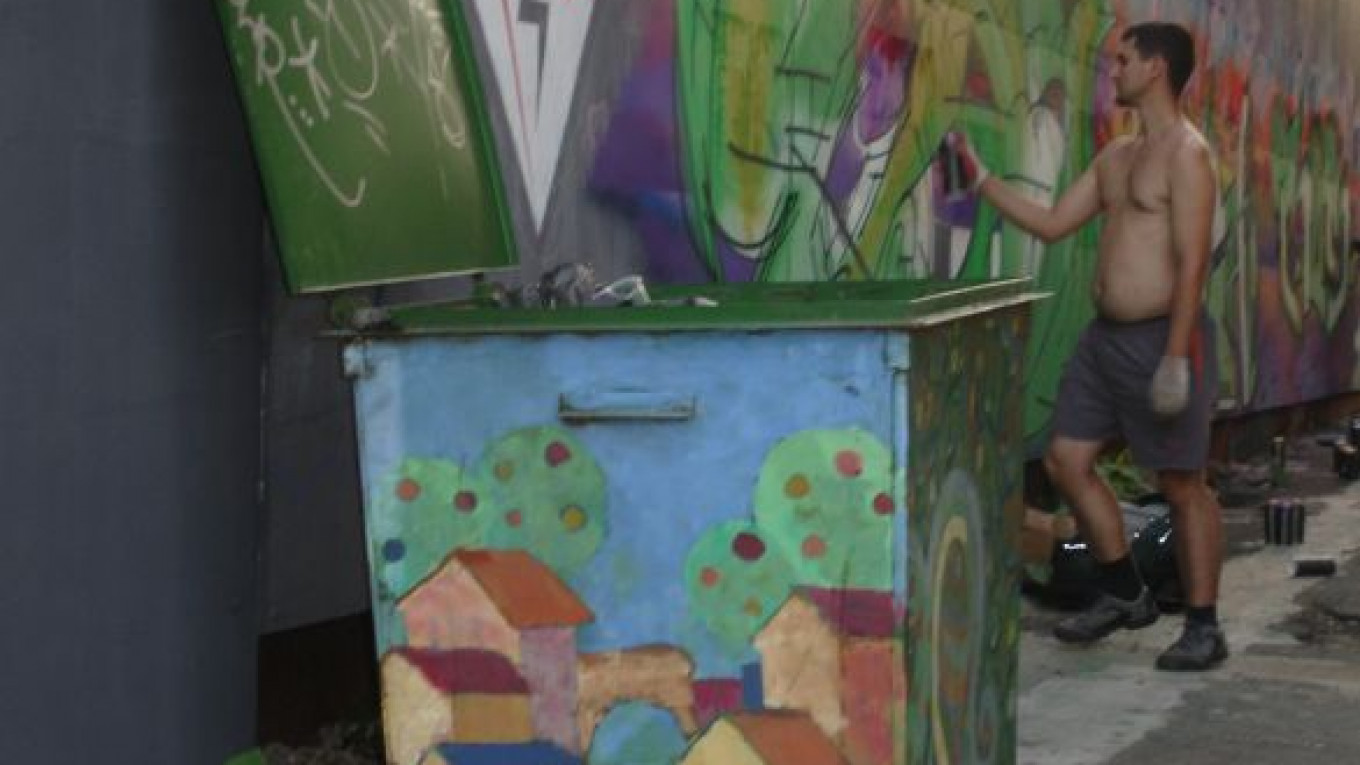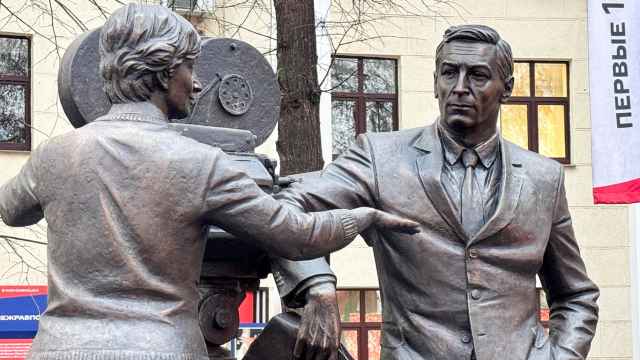Catch a suburban train into Moscow and you will see walls covered in graffiti, urban street art to some, hooliganism to others. Two recent events have tried to bring the world of graffiti into the city and onto an official footing.
Luzhniki stadium complex, which is following the path of Gorky Park in trying to turn a tired, ramshackle area of leisure into one more welcoming to Muscovites, held a 3D graffiti competition last week for budding Madonnari.
The name Madonnari stems from the tradition of Italian artists who painted religious pictures on the streets during church festivals using colored sand and chalk. Their most painted motif was Jesus’ mother, Mary, the Madonna, hence they were named Madonnari.
This art form, which goes back to the 16th century, had nearly died out until the small Italian town of Grazie di Curtatone held a Madonnari competition in 1972, inviting the few surviving traditional masters of asphalt painting to show the world their crafts. Even though some of the participants were in their nineties, the festival helped relaunch pavement painting.
Today, there are hundreds of Madonnari around the world, with German artists Edgar Müller and Manfred Stader particularly well known for their often graphic drawings.
“We are a little late on all the trends that spread quickly around Europe or the United States,” said Filipp Kozlov — aka Phillippenzo, one of only three Madonnari in Russia — while sitting on the floor blending colors with his fingers.
Three-dimensional pictures have to be designed on a computer first, as angles need to be calculated so the picture can stretched. That way the observer has the illusion of the picture coming off the ground.
“My mathematical background has helped me to learn the technique”, said Kozlov, who was once arrested by the police and put in jail for painting a 3D boat on a street in Volgograd. Kozlov became a Madonnaro in 2006, after seeing a street artist paint on the streets of New York.
Organizers hope that Luzhniki can become a platform for the Madonnari by giving artists a legal space in the complex, where they can create without fear of being bothered by the police. “What is most fascinating about these chalk paintings,” says Olga Dolinova, one of the organizers of the event, “is that they do not last at all. They are only there for a moment until the rain takes it all away.”
In the same week, design factory Flacon launched Street Art Act, a festival devoted to graffiti, by bringing in German graffiti artists Can 2 and Mad C who spent almost eight hours on one of their grand designs.
“Legal graffiti is rare and, even though it mostly depends on the size and progressiveness of the individual city, obtaining permission to paint walls is hard when you do not belong to the handful of renowned graffiti artists,” Mad C said.
Russian artists also joined in and Flacon organizers said they wanted the factory to become a legal space for Russian graffiti.
For more information about events, see and .
A Message from The Moscow Times:
Dear readers,
We are facing unprecedented challenges. Russia's Prosecutor General's Office has designated The Moscow Times as an "undesirable" organization, criminalizing our work and putting our staff at risk of prosecution. This follows our earlier unjust labeling as a "foreign agent."
These actions are direct attempts to silence independent journalism in Russia. The authorities claim our work "discredits the decisions of the Russian leadership." We see things differently: we strive to provide accurate, unbiased reporting on Russia.
We, the journalists of The Moscow Times, refuse to be silenced. But to continue our work, we need your help.
Your support, no matter how small, makes a world of difference. If you can, please support us monthly starting from just $2. It's quick to set up, and every contribution makes a significant impact.
By supporting The Moscow Times, you're defending open, independent journalism in the face of repression. Thank you for standing with us.
Remind me later.






